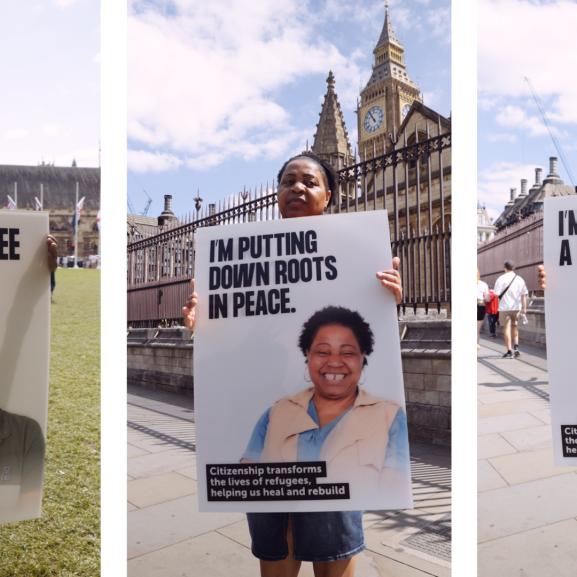New Safeguards Needed to Protect Torture Survivors from Detention
Key safeguards must be introduced to protect asylum seekers fleeing torture from further unnecessary suffering at the hands of the UK immigration authorities, the Medical Foundation urges.
The Home Office's readiness to detain such people once they reach the UK shows a willingness to ride roughshod over basic humanitarian principles.
The MF calls on the UK Government to:
? Reaffirm its undertaking that it will only detain asylum seekers who have survived torture in "exceptional circumstances".
? Introduce "pre-screening" medical checks to identify torture survivors before they are detained.
? Reform the asylum system so that new arrivals in detention with a history of torture can be quickly identified as such and released.
? End the present practice of detaining unsuccessful asylum applicants with foreign national prisoners (FNPs) facing deportation.
The MF believes that while the Government may still publicly honour international standards obliging it to provide a refuge for those fleeing torture and persecution,
its real priority is to drive down asylum numbers.
That desire is reflected by the introduction in recent years of a tougher asylum regime, including an increased use of detention, which signals, despite the human cost involved, that Britain is not a "soft touch".
The Government has previously said that torture survivors will only be detained in "exceptional circumstances", but the recent listing of four categories of asylum seekers that face detention did not support that undertaking.
The categories were: unsuccessful asylum seekers facing enforced removal, convicted criminals and those facing return to a third country, from whom the public needs protection; and persistent absconders.
The MF fears that the list, revealed in a House of Lords debate about the new asylum bill, will be seen by immigration officers as official sanction to detain many people who would hitherto have remained at liberty.
It is concerned at the effect of detention on the mental health of people who have been imprisoned and tortured in their countries of origin, with retraumatisation a real possibility, and it is not satisfied that the level of care available in detention for such people is sufficient.
A report by Anne Owers, HM Inspector of Prisons, into Harmondsworth immigration detention centre last year drew attention to the lack of training for healthcare staff in the management of patients who had been tortured "although this has been a recommendation in two previous inspections." She also criticised healthcare arrangements at another centre, Yarl's Wood.
The detention of torture survivors whose asylum claims have been unsuccessful is, according to MF refugee policy officer David Rhys Jones, "a moral outrage".
Pointing out that some cases fail even though it has been accepted that the applicant has been tortured, he said: " How can it be accepted that it is invariably inappropriate to detain a torture survivor at the start of the asylum procedure, but perfectly acceptable to use detention at the end? If torture has been accepted on the basis of "independent evidence", then how can continued and indefinite detention be acceptable?"
Dr Christina Pourgourides a former MF psychiatrist and author of A Second Exile: the Mental Health Implications of Detention of Asylum Seekers (1996), had investigated the effect of detention on mental health.
She believes that: "For survivors of torture the experience of detention may provoke feelings of fear and powerlessness and restimulate their distress."
One glaring anomaly to which the MF has consistently drawn attention is the failure of the Home Office to act when notified that a torture survivor has been detained, despite requiring healthcare staff to notify them of such individuals.
The MF is also concerned that particularly vulnerable torture survivors in detention could, through no fault of their own, find themselves caught up in the kind of disturbances that recently flared up in two immigration detention centres.
An enquiry into the disturbances at Harmondsworth and Campsfield House found that matters were in part aggravated by the presence of FNPs awaiting deportation alongside asylum seekers whose claims had failed.
Report author Robert Whalley said: "There are several groups of FNPs presenting high risk in terms of potential for disorder." This included those feeling particularly aggrieved at the prospect of further detention followed by deportation after serving a period of imprisonment.
"There is little to inhibit them if an opportunity to engage in wanton disorder presents itself. The greater their frustration at their position, the greater the risk of disorder," he warned.
He added that FNP's can "present manipulative and bullying behaviour which will have an impact on vulnerable detainees."
The Whalley report stopped short of recommending that such prisoners to be detained separately because of the pressures on the prison system, but the MF joins with a number of refugee organisations in calling for separate facilities to be made available.





